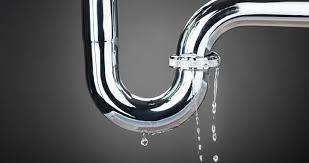 March 2019
March 2019
Water is the new fire when it comes to protecting condo communities and infrastructure. Measures intended to minimize flood damage and deal with long-term power outages have become a priority.
This comes as no surprise. Canadian insurers have paid out more than $1 billion for claims related to natural disasters, including hurricanes and flooding, in eight of the past nine years. The annual average over the prior 25 years ranged from $200 to $500 million. Canada experienced some of the greatest single-year weather-related losses in 2017. The general consensus is that flooding in the coming years will greatly exceed anything seen thus far.
Condo community building codes and planning, based on the greater likelihood of fire and focused on evacuation, are outdated. The greater likelihood is that residents will need to remain in their home rather than evacuate during an emergency.
Condo communities are generally asleep when it comes to these preparations. They tend to be complacent until problems are upon them at which time it is too late. Condo communities can and should take measures today to ensure they are prepared for what we know is coming by focusing on measures allowing residents to remain in their home during emergencies.
 When flood damage occurs, as with fire, restoration services are typically required to restore spaces to their original condition. RespondPlus provides the necessary restoration services after a flooding incident. They provide the following suggestions so that, when flooding occurs, problems are minimized.
When flood damage occurs, as with fire, restoration services are typically required to restore spaces to their original condition. RespondPlus provides the necessary restoration services after a flooding incident. They provide the following suggestions so that, when flooding occurs, problems are minimized.
- Redesign downward slopes to the building so that water runs away from the building.
- Improvements in the building envelope will make it easier for residents to remain indoors during emergencies. Locate electrical, heating and HVAC equipment above ground level to help keep building systems operational when large amounts of water flow to lower levels of the building. Improve indoor airflow to better control internal temperature and air quality should HVAC systems fail.
- Establish an area in the building for residents to congregate during an emergency. Choose a space connected to an emergency power source. Stock the area with food, water and charging connections for mobile communication systems. Encourage residents to make their way to this area any time power goes out or communication systems fail.
- Maintain a list of residents likely in need of assistance if building systems fail for more than a few hours.








